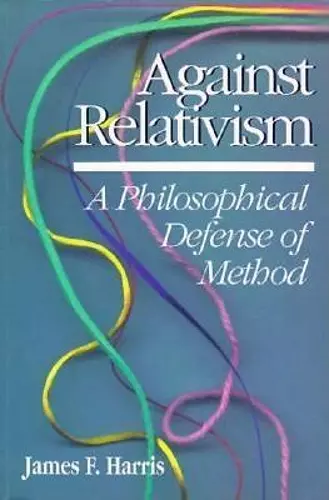Against Relativism
A Philosophical Defense of Method
Format:Paperback
Publisher:Open Court Publishing Co ,U.S.
Published:25th Feb '99
Currently unavailable, our supplier has not provided us a restock date

When the Catholic Inquisitors persecuted Galileo for teaching that the Earth moves through space, they did so because Galileo insisted that this was the truth. The Church was quite prepared to tolerate the notion of a moving Earth, so long as it was regarded as an instrument useful for calculation, as true merely within a particular framework which might be adopted or discarded for reasons of convenience. For centuries Galilieo has been seen as a heroic fighter for enlightenment against benighted tyranny, but strangely enough, recent years have seen the rise, within Western philosophy, of a wave of relativism, according to which Galileo was wrong and his persecutors were correct. In the view of this new relativism, which has roots in both the continental and analytic traditions, there are no universal or trans-cultural standards of rationality. Among the sources of the new relativism are the failure of logical positivism and the shift within anthropology from a single evolutionary model to several models for understanding human culture. In this critique of relativism, Professor Harris turns the techniques of relativism against relativism, showing that it is ultimately self-refuting or ineffectual. A number of methodological points are stressed in the book. Quine's rejection of the analytic-synthetic distinction appeals to the very analytic truths Quine hopes to dispel. The relativism arising from Goodman's "grue paradox" is innocuous, since the paradox is not really concerned with induction. Kuhn's theory of paradigms must be either self-refuting or incomprehensible. Winch grossly distorts Wittgenstein's theory and fails to show that basic notions of rationality are culturally relative. Rorty cannot avoid presupposing the epistemological principles he is attacking. Finally, feminist criticism of science can exert a welcome corrective, but the notion of a distinctive "feminist science" is indefensible (and counter-productive for feminism).
ISBN: 9780812692020
Dimensions: unknown
Weight: 411g
228 pages